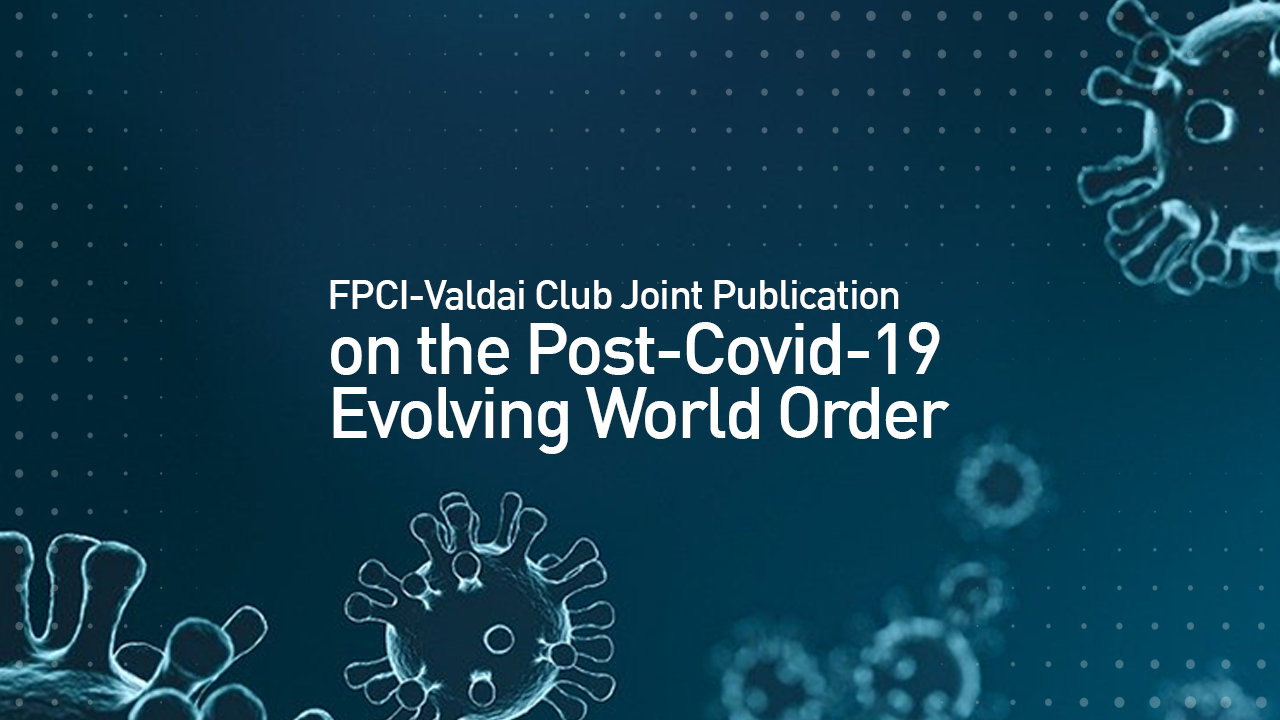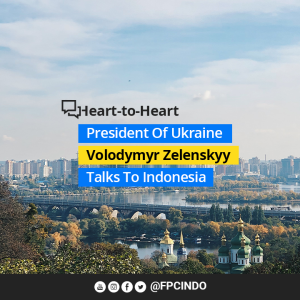FPCI-Valdai Club Joint Publication on the Post-Covid-19 Evolving World Order
 Dr. Yaroslav Lissovolik
Dr. Yaroslav Lissovolik
Moscow, October 2020
The current pandemic may well engender longer lasting and more fundamental social and economic effects, such as risk-aversion and the shift from “mass culture” to that of the “revolt of isolationism”. In the economic sphere one of the implications of the current crisis may be greater investment into “social distancing” undertaken in areas such as transportation, education, retail trade, restaurants and catering, etc. The sudden transformation of demand resulted in the emergence of qualitatively “new demand” that remains largely unsatisfied, along with the disappearance of sizeable tracts of “old consumer demand”.
The revolt of distance
The re-assertion of distance comes after decades of what many viewed as the conquering of the distance divide. Falling transportation costs as well as greater use of internet and telecommunications technology were among the main channels bringing about greater proximity of the consumer goods and services. Regional concentration of innovation and production activity was seen as a key factor for positive technological spill-over effects as well as cumulative agglomeration and economies of scale in production. These forces favouring regional concentration will of course not disappear, but their further progression may be scaled down as companies weigh the need for securing reserve locations as well as reducing the regional concentration of operations to hedge regional risks.
The greater significance of distance is likely to be felt across various levels of the world economy – whether at the macro-level of countries and regions or at the micro-level of companies. In the latter case, the “new reality” may involve greater social distancing at the work place and the reduced prevalence of “open space”. There may be further implications for corporates in such areas as supply and delivery logistics, with firms eyeing to expand the array of available options of delivery to customers. In particular, Russian companies such as Yandex are employing the use of drivers as delivery couriers, while X5 are using flexible strategies to reduce the delivery time through the use of couriers. Flexibility in modes of delivery is likely to be further complemented by measures to raise the proximity to customers via bonus/corporate/loyalty programs.
At the level of countries, greater diversification of trade and investment flows away from excessive reliance on any one region, may be seen as the way to respond to pandemic-type shocks and mitigate external risks. This may be again viewed through the prism of raising the optionality for domestic producers to export goods and services to those destinations where demand conditions are relatively more benign. This in turn may involve efforts to reduce reliance on the neighbouring countries and regions and to explore the options in the “far abroad”.
In Russia’s dealings with the outside world the issue of distance and synchronicity is particularly important given that most of the inner regions of the country are landlocked. This raises the importance of greater coordination of economic policies with Russia’s regional partners, including with respect to the anti-crisis measures and the introduction/lifting of quarantine restrictions. In building Russia’s cooperation with the far abroad Russia and its partners in the Eurasian Economic Union will likely seek to build ties with the regional unions that have the greatest degree of integration into the global economy and that could serve as logistical hubs for Eurasia’s export flows and the assembly of regional value chains. In this regard, ASEAN countries will likely feature among the top priorities for the network of partnerships of the Eurasian Economic Union, which has already been demonstrated by the signing of a Memorandum on cooperation between ASEAN and the EAEU.
The “gravity” of the pandemic and the role of regionalism.
In economic theory the gravity model relates the intensity of economic interactions between countries as a function of distance and the respective GDP mass of countries. The current crisis results in greater effective distances for economic exchanges to take place as quarantine measures limit the flow of goods, services and migrant workers. These effects of the pandemic are compounded by the adverse effects of the crisis on demand and the sizeable reduction in the GDP mass of the largest economies. The result is a weakening of the forces of gravity in the relations among the world’s economies.
A force that may counter these negative tendencies at least in part is regional integration. Ex-ante regional integration through coordination mechanisms to ensure synchronicity in policy response renders the regional system more resilient to external shocks – the elaboration of scenarios of coordinated action, targeted support for regional value chains and regional integration projects attenuates the potential negative effects of the crisis. Ex-post regional coordination strengthens the recovery phase via synchronized stimulus as well as synchronized/coordinated measures to lift the lockdown restrictions. The latter in effect allows for the full effects of relaunching the production across the regional value chains.
One of the key features of the post-pandemic economic landscape may be fragmentation of global and regional value chains, which effectively opens up opportunities for new entrants into the alliances, consortia and value-chains across sectors, products and regions. Against this backdrop, efforts to nationalize regional or global value chains, i.e. to restrict the scope of value chains to national borders, may prove self-defeating as this may undermine the capability of national producers to integrated themselves into diversified global value chains that are likely to have more flexibility and competitive edge over “nationalized” value chains. Recent economic research points to the limitations associated with efforts directed at “nationalizing” value chains in a pandemic setting[1].
Granted, the degree of persistence of the effects of the current economic crisis and the pandemic are yet unclear and in a positive scenario the coming years may well show an evaporation of the current risk-aversion and obsession with social distancing. But the recovery patterns of countries that have passed the peak of the crisis/pandemic point to significant inertia in consumer patterns and social behaviour. There may be further longer-term reactions to the crisis via the electoral cycle resulting in greater protectionism and isolationism, most notably with respect to migration flows. This in turn is yet another argument in favour of regionalism as a way to counter the isolationist impulses emanating from the current crisis. If the question is advanced on what kind of a global architecture would be more resilient to a pandemic-type shock, from an economic perspective the answer would likely be that a “regional world” may prove to be superior compared to a more fragmented world of disparate national economies.
[1] Barthélémy Bonadio, Zhen Huo, Andrei A. Levchenko, Nitya Pandalai-Nayar. Global Supply Chains in the Pandemic. NBER Working Paper No. 27224. Issued in May 2020
Dr. Yaroslav Lissovolik

Dr. Lissovolik is a Programme Director of the Valdai Discussion Club. He worked in the International Monetary Fund, in Washington, where he was Advisor to the Executive Director for the Russian Federation (2001–2004). In 2004 he joined Deutsche Bank as Chief Economist and became Head of Company Research in Russia in 2009, and then a member of the Management Board of Deutsche Bank in Russia in 2011. In 2015-2018 Yaroslav Lissovolik was Chief Economist and subsequently Managing Director of Research and Member of the Management Board at the Eurasian Development Bank (EDB). Since 2018 he has been Senior Managing Director — Head of Research at Sberbank Investment Research (CIB).
Dr. Yaroslav Lissovolik is also a member of the Council on Foreign and Defense Policy (CFDP), Bretton Woods Committee and the Russian International Affairs Council (RIAC). In 2012 he became a member of the Government Expert Council. Dr. Lissovolik has published books on the Russia’s entry to the WTO and Russia’s integration into the world economy, as well as numerous articles and papers on economic and policy issues.
Envisioning a Brighter Post-Pandemic Global Relations by H.E. Nadjib Riphat Kesoema





